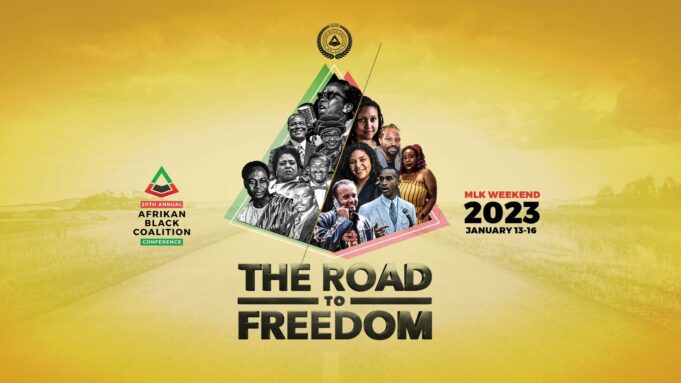On campuses of higher learning around the country, Black college students are taking charge of their destinies with a determination to uplift themselves and their communities.
Among them is the Afrikan Black Coalition (ABC), a California coalition of Black college students. ABC is a youth development organization that trains Black college students in political education, organizing, and leadership. ABC celebrated its 20th anniversary by holding its first conference outside of California, in Las Vegas, Nevada, Jan. 13-16.
“The Black college student will always have a role in the liberation of Afrikan people. History has demonstrated this in the Black Campus Movement and in the Black Panther Party, and other Black organizations,” said MaRonda X, executive director of ABC. She is also a registered member of the Nation of Islam and attends Muhammad Mosque No. 27 in Los Angeles.
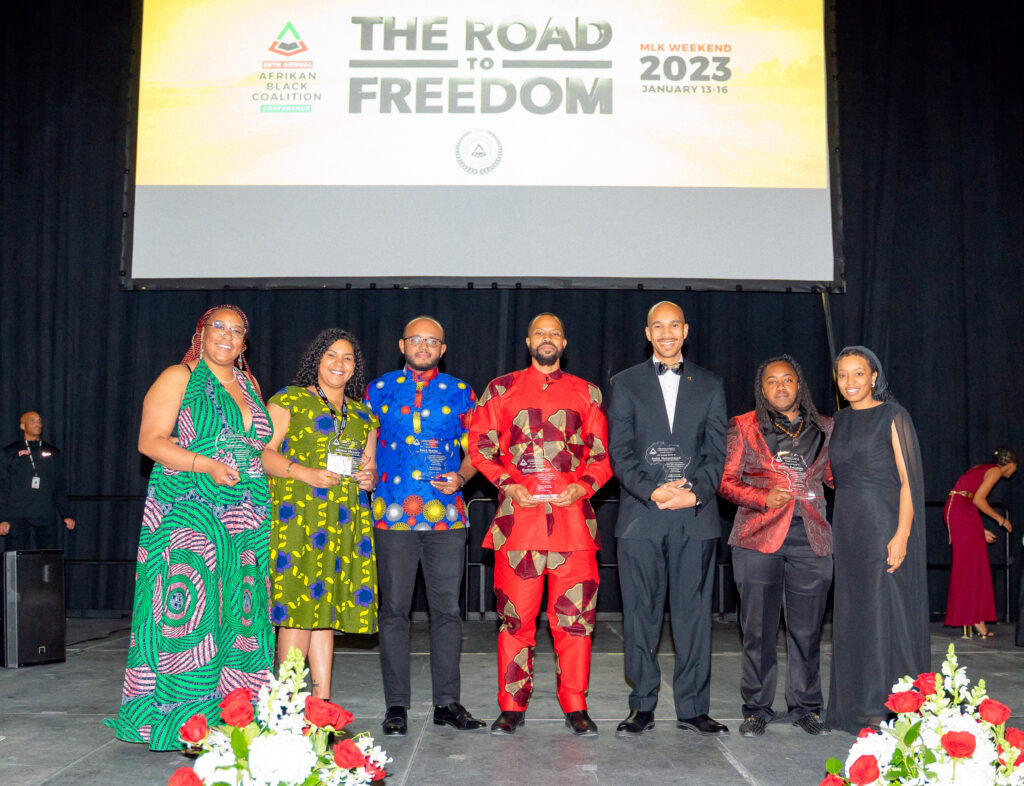
Themed “The Road to Freedom,” ABC’s 20th annual conference was hosted by the Black Student Organization of the University of Nevada, Las Vegas (UNLV). Keynote speakers were Queen Afua, a wellness coach with over 40 years of service as a holistic health practitioner, and Marquis Henri Muhammad, a speaker and influencer, who teaches, trains, mentors, and helps guide inner-city youth.
Some of ABC’s many accomplishments include teaching a Black Studies seminar in San Quentin State Prison, and securing over $1 million in support of Black recruitment and retention efforts, according to its 2023 planning committee. In short, these accomplishments among others provide ABC with plenty of reasons to celebrate, they noted.
This year’s workshop topics included, “Black Ideology and Politics,” which explored the foundations of Black Nationalist and Pan-Africanist thought, the “History of Black Student Organizing,” which introduced participants to the history of the Black campus movement and its victories, and “Demands Campaign: The Basics, and Building Generational Wealth through Real Estate,” which highlighted various strategies students may use to purchase their first property.
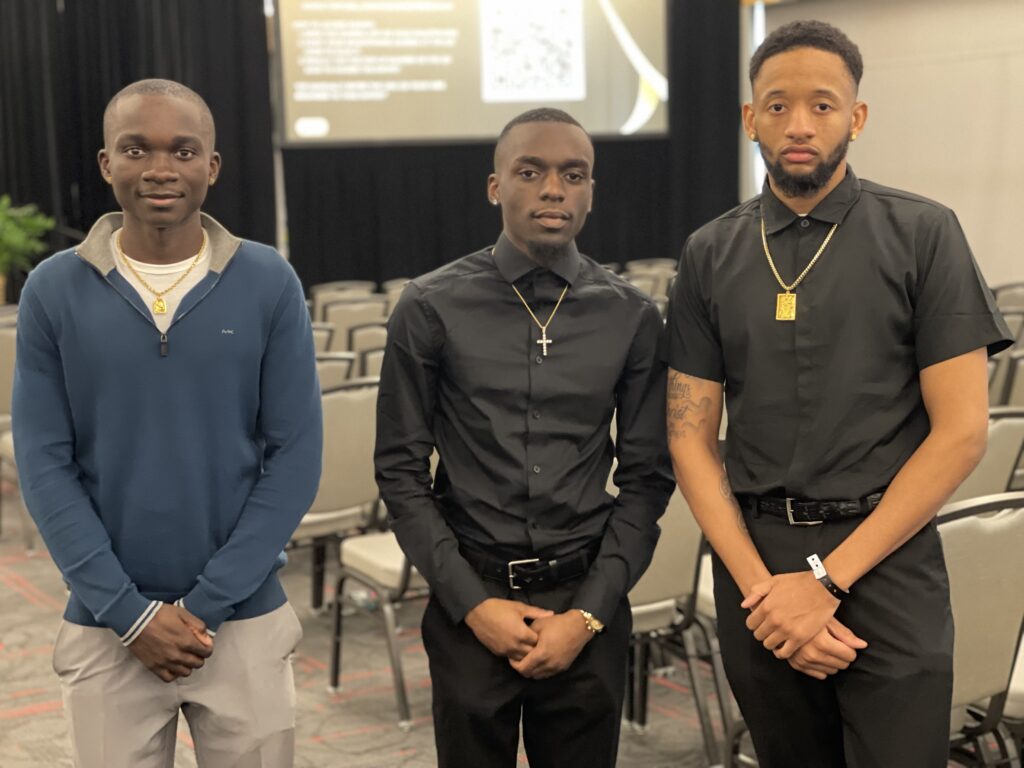
Three graduating seniors from California State University Fullerton attended the Afrikan Black Coalition conference for the first time: Jared Boateng, Simon Cadet and Rodney Fulson. Photo: Charlene Muhammad
On Jan. 15, “As told By … ,” provided participants with an opportunity to review and analyze popular films that center on Afrikan/Black people. “Us or Else: Letter to the System” explored hip-hop and how it is intricately connected to Black students’ lived experiences, and “I Said What I Said” focused on debates in social media and online news outlets.
Three graduating seniors who attended the conference for the first time and who attend California State University Fullerton, located in the predominantly White Orange County, California, told The Final Call they thoroughly enjoyed their conference. That’s particularly since Black people make up less than two percent of their campus, said Rodney Fulson, who majors in business. “It was really insightful seeing all of these Black people in one place. I loved the whole experience,” he said.
Jared Boateng, is a public health major. He found ABC’s 20th conference insightful and rewarding. “What I’m really going to take into the future is to be aware of who you trust, especially those who aren’t like you are … more self-conscious because sometimes you get comfortable and even with professors, you feel like everybody’s on your side, but they’re not,” said Mr. Boateng. “You just gotta stay grounded and remember who you are,” he said.
Simon Cadet, who is studying business marketing and accounting, gained great insight and commended ABC for making it possible for students to gather and share culture and fun each year.
“This really inspired me to get more involved in my school area,” said Mr. Cadet. “We have a Black population, but we’re not really a majority and it tends to be hard for us to get together in groups, because we’re separated. … What I can do is try to get us into a space and reach out to as many people as I can for us to be together. I can start with that,” stated Mr. Cadet.
Making an impact
“In modern times, I don’t think we have the same grit, innovation, and sacrificial spirit as our elders and ancestors did—but I do think we have the passion and desire to serve and to make a difference. I think with a knowledge of self and history, I wholeheartedly believe we could be better, do better, and go further than what was done in the past,” said MaRonda X.
“However, we just need to have the desire and humility to learn more and to be connected with the masses of our people,” she added.
Part of the challenge with connectivity is the reality that the education process today for Black college students is drastically different, according to Salih Muhammad, former ABC executive director. For example, in the 1960s, the professors in fields like Black Studies and those oriented towards the humanities and social sciences were those who had real life experiences of working, organizing, and fighting for Black people, he stated.
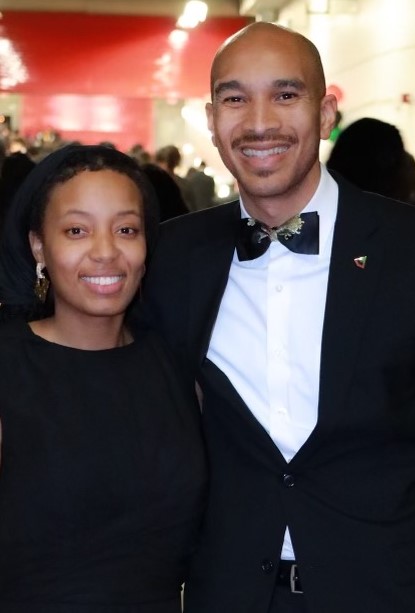
“Today, much of the faculties in the departments where Black students find themselves are largely isolated from the lived experiences of the Black masses,” Mr. Muhammad told The Final Call. “There’s a much larger disconnect. There’s a wider gulf between the experiences of Black students on campus and what they experience back at home,” he said.
Birthed in 2003, ABC existed as a conference for its first 10 years. However, as Mr. Muhammad transitioned into its executive director role around 2014, ABC began to adopt a set of deliverable things it sought to improve the quality of life for its students, he noted. The aim was to show Black students what Black nationalism and Black nationhood could look like and function as, he said.
At that time, he said, ABC was able to get the University of California to divest $475 million from the private prison industry. The student-led organization was also able to get most campuses to allocate resources, upwards of $1 million, to establish spaces for Black students, such as Black Resource Centers, according to Mr. Muhammad.
“The theory was to create, as much as we can, physical spaces where Black students could be a part of their Black nation and be protected and defended and supported in a context and an environment that was safe,” said Mr. Muhammad.
ABC, which includes 22-23 campuses as member organizations, continues that effort through its 10-Point Plan, which advocates for freedom and power to determine the destiny of their Black community; an immediate end to police brutality and White terrorism and the gratuitous murder of Black people; and education for Black people that exposes the true nature of America’s decadent society.
“Don’t forget why you are there. Many of our students enter universities with a sincere hope or desire to impact and to improve the quality of life for Black people and to change our material condition. But as we matriculate through universities, that gets further and further away from us and by the time most of us graduate and begin searching for our first jobs or employment opportunities, we’ve been all but completely disconnected from our people’s struggle,” noted Mr. Muhammad. “Find ways to maintain integrity with that purpose,” he said.
The power to bring about change by Black students is tremendous, according to Dr. Chike Akua, assistant professor of educational leadership at Clark Atlanta University. Just about every great movement for Black people’s liberation started with young people, particularly when one thinks back to the Civil Rights Movement or Black Power Movement, he said. They were oftentimes pushed by college students who were raising questions that others were afraid to raise or unable to raise in their current positions, he said.
“College students were just coming into an awakening of consciousness before they were trapped by a system that would silence their voices,” stated Dr. Akua.
That is why it is so important to surround them with elders with wisdom and the right knowledge to help them push their people forward, he told The Final Call.
Harnessing power
The power of Black college students lies in their unity and organization, as did Kwame Ture’s, Dr. Akua said, referring to the late, great student leader once known as Stokely Carmichael, chairman of the Student Nonviolent Coordinating Committee (SNCC).
“One of the things that he insisted was that we organize. … One of the things that happens is that we oftentimes are isolated and alienated in disunity, and when we’re isolated, we’re not strong because we’re fighting as an individual within systems,” said Dr. Akua.
“However, when you take into account Kwame Ture’s words, ‘Organize! Organize! Organize,’ he says everything we do should be within an organization so that we can have the insulation and the protection that comes with an organization that can advocate on our behalf,” added Dr. Akua.
Therein lies ABC’s power. Around the country, Black college students are standing strong in the face of adversity at PWIs (predominately White institutions) and HBCUs (Historically Black Colleges and Universities).
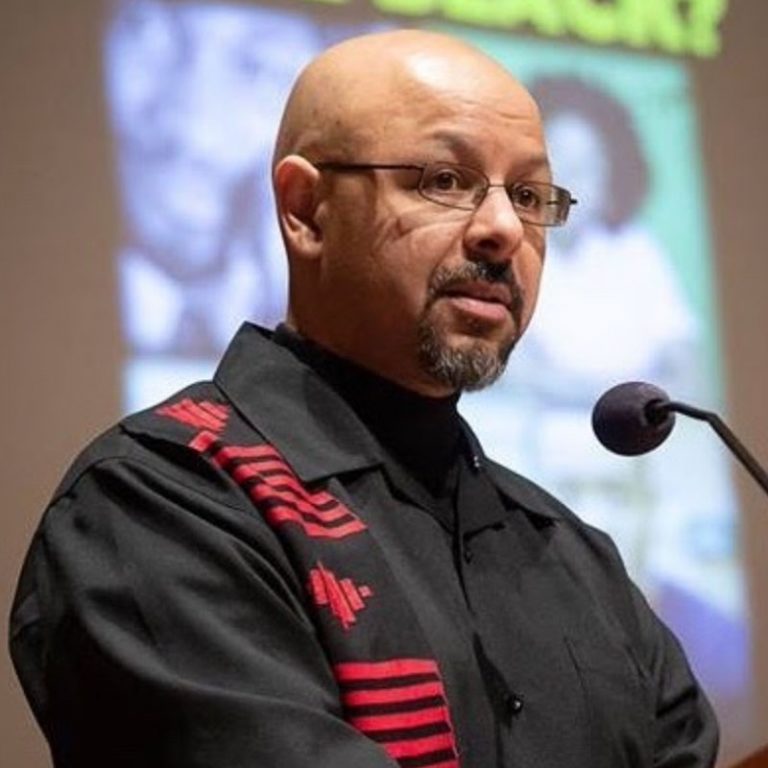
“I think about the Blackburn takeover at Howard University where Black students demanded for better living arrangements. I think about Students Deserve in Los Angeles, who on a high school level, advocated for all police officers to be removed from the Los Angeles school district. I think about True Culture University, an organization committed to connecting Black college students all over the world to support and communicate with one another,” said MaRonda X.
“I’m witnessing first-hand Black college students who are taking charge of their student experiences and doing what they need to do to ensure Black college students matriculate and resources are given to the community where they can,” she stated.
For example, in Washington, D.C., a tent-city encampment came down at the Howard University Blackburn Center in Nov. 2021, after one of the longest protests in school history. In mid-October of that same year, students initially raised concerns over poor housing conditions and COVID testing. They also called for the reinstatement of student, faculty, and alumni members to the Board of Trustees. In protest, a band of students occupied the Blackburn Center and refused to leave.
Recently students at Bethune-Cookman University protested on campus over poor living conditions on the Daytona Beach, Fla., campus. Broken ventilation systems, inconsistent hot water and mold-infested dorms were some of the complaints pointed out by students. Protests erupted on the heels of NFL Hall of Famer Ed Reed—who had been hired as the new football coach—expressing his concern about what he witnessed on campus.
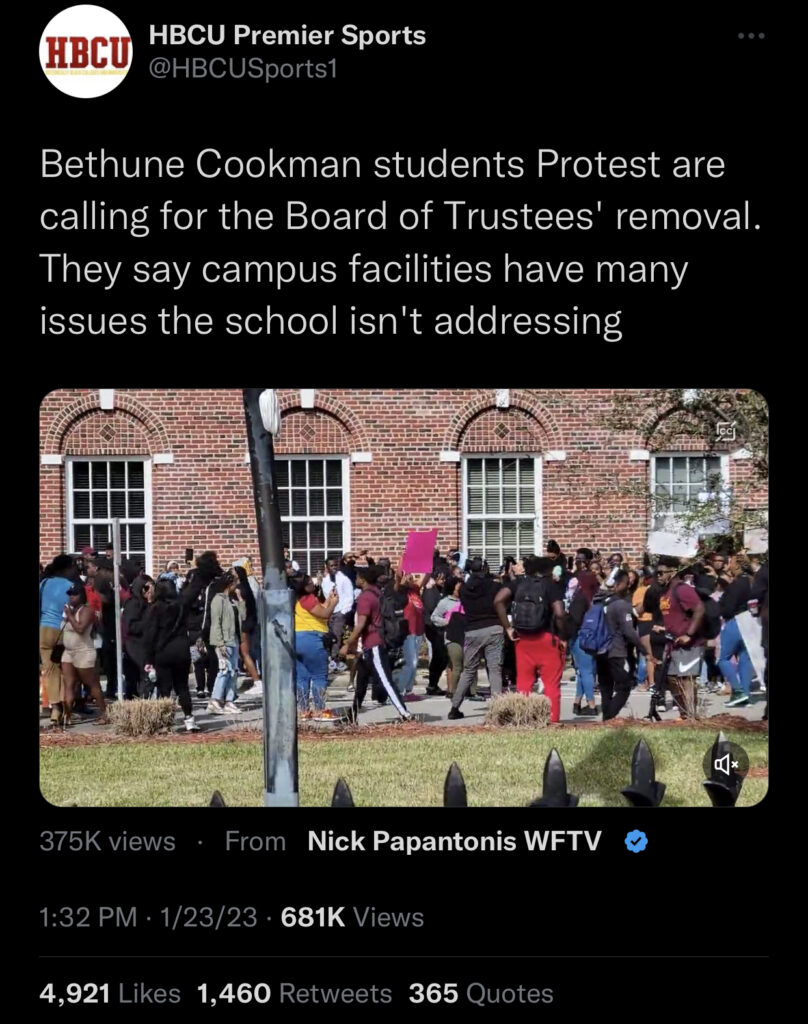
Before he could begin, university officials terminated Mr. Reed’s contract after he passionately called out the dire conditions facing students on campus.
On Jan. 24, more than a dozen students launched a sit-in in White Hall, the campus chapel, and some stayed into early the next morning, according to news reports. That afternoon, roughly 40 students on this campus of about 2,700 marched to Daytona Beach City Hall to ask leaders for a meeting about their concerns.
According to NBC, on Jan. 25, Janiya Jones, 21, vice president of the school’s Student Government Association, and Wilbert Stubbs, president of the Student Government Association, met with the school’s interim president, Lawrence Drake, about a host of issues, from housing woes to scholarship needs. Ms. Jones said that Mr. Drake wrote down each of their demands on a whiteboard.
“We won’t stop until a change is made,” said Maya Walker, a senior who participated in the Jan. 24 sit-in and the Jan. 25 march. “It’s time to start changing. We had a protest five years ago—nothing has changed,” she was quoted as saying.
Over the past several decades, the Honorable Minister Louis Farrakhan of the Nation of Islam has spoken on college campuses and to young students across the country. He has challenged them, whether they attend HBCUs or PWIs (predominately White institutions) to utilize their gifts, skills and talents to help their communities, their people and to be voices for change.
“I want to challenge you, students: Don’t you come here to get some meaningless degree so you can put it on the wall to pacify grandmama, or mama or daddy,” Minister Farrakhan told students during the 2nd Annual Black United Summit International (B.U.S.I.) Conference held on the campus of Morgan State University in 2014.
“You come here and challenge yourself to get a degree in something that will allow you to build a future for yourself and your people,” the Minister said. Final Call Staff contributed to this report.












